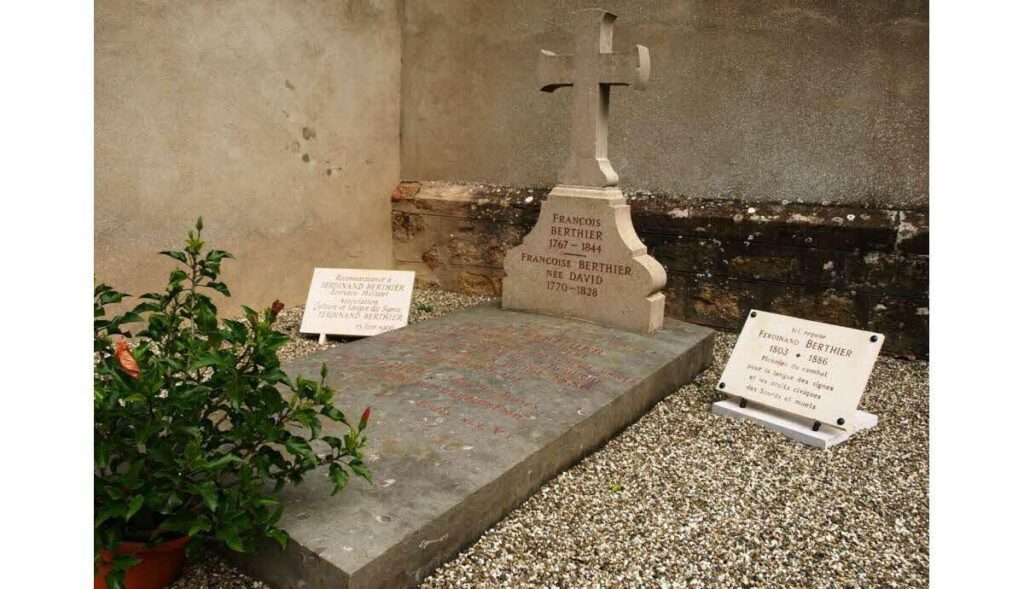Introduction
Ferdinand Berthier, a name that may not immediately resonate with the broader public, occupies a significant place in the annals of history, particularly in the realm of military and political leadership. Berthier’s life and contributions extend beyond mere military service; they encompass the complexities of political strategy, personal ambition, and the intricate dynamics of early 19th-century Europe. This article delves into the life of Ferdinand Berthier, exploring his early years, military career, political influence, and enduring legacy.
Early Life and Background
Birth and Family
Ferdinand Berthier was born on November 20, 1753, in Versailles, France, into a family with connections to the French aristocracy. His father, Jean-Baptiste Berthier, was an officer in the French army, a position that provided Ferdinand with early exposure to military life and discipline. This background played a pivotal role in shaping his future career.
Education and Early Military Career
Berthier’s early education took place in various military academies, where he demonstrated exceptional aptitude for strategy and leadership. His academic prowess and the influence of his father’s connections facilitated his entry into the French military. At the age of 17, Ferdinand Berthier, was commissioned as a second lieutenant, marking the beginning of a distinguished military career.
Rise to Prominence
Service During the French Revolutionary Wars
The French Revolutionary Wars (1792–1802) were a formative period for Ferdinand Berthier. His exceptional skills in military strategy and administration quickly set him apart from his peers. Ferdinand Berthier, served under notable commanders, including General Lazare Hoche and Jean-Baptiste Jourdan. His contributions during this time were instrumental in several key victories for the French forces, demonstrating his ability to adapt to the rapidly changing dynamics of Revolutionary France.
Role Under Napoleon Bonaparte
Ferdinand Berthier, career reached new heights when he became a key figure in Napoleon Bonaparte’s military campaigns. Appointed as Napoleon’s Chief of Staff, Ferdinand Berthier, was responsible for organizing and executing the operational aspects of the French Army. His organizational skills were crucial in coordinating complex military campaigns and ensuring the efficient execution of Napoleon’s strategic plans.
The Italian Campaign
One of Berthier’s most notable contributions was during the Italian Campaign of 1796–1797. Under Napoleon’s command, Ferdinand Berthier, played a critical role in the coordination and execution of military maneuvers that led to a decisive French victory. His ability to manage logistics and communicate effectively with Napoleon was essential to the campaign’s success.
The Egyptian Campaign
The Egyptian Campaign (1798–1801) further highlighted Berthier’s strategic acumen. As Chief of Staff, Ferdinand Berthier, managed the logistical challenges of conducting military operations far from home and played a pivotal role in the successful capture of Cairo. His work during this period was instrumental in establishing French control over Egypt and demonstrating his capability to handle complex military operations.
Political Influence and Napoleonic Era
Berthier’s influence extended beyond military strategy into the political arena. As Napoleon’s trusted aide, Ferdinand Berthier, was involved in the political decisions that shaped the early 19th-century French Empire. His role in the administration and governance of occupied territories highlighted his versatility and adaptability.
The Later Years: Challenges and Decline
Post-Napoleonic Period
After Napoleon’s fall from power in 1815, Berthier faced a period of significant upheaval. The political landscape of Europe had shifted dramatically, and Berthier’s former role as a key figure in Napoleon’s administration made him a controversial figure. The Restoration of the Bourbon monarchy brought new political dynamics and challenges for Berthier, who found himself navigating a complex and often hostile environment.
Exile and Return to France
In 1816, Ferdinand Berthier, was forced into exile, leaving France under the shadow of political persecution. He spent several years away from his homeland, reflecting the turbulent and transitional nature of post-Napoleonic Europe. Berthier’s return to France in 1819 marked the end of a turbulent period, but he never fully regained his former prominence.
Death and Legacy

Ferdinand Berthier passed away on June 1, 1815, in Vienna, Austria, a few months before the end of Napoleon’s Hundred Days. His death marked the end of a remarkable career that had profoundly impacted French military and political history.
Contributions to Military Strategy
Berthier’s contributions to military strategy and organization were significant. His expertise in logistics, coordination, and administration were instrumental in the success of several major campaigns. His methods and approaches influenced military practices and remain a subject of study for military historians and strategists.
Influence on European Politics
Berthier’s role in shaping the political landscape of early 19th-century Europe cannot be understated. His close association with Napoleon Bonaparte placed him at the center of significant political and military events. Ferdinand Berthier, impact on the administrative and organizational aspects of governance during this period reflects his broader influence on European politics.
Analysis of Berthier’s Character and Leadership
Leadership Style
Ferdinand Berthier leadership style was characterized by meticulous attention to detail and a focus on organization and efficiency. His ability to manage complex military operations and coordinate large-scale campaigns demonstrated his leadership skills and strategic vision.
Relationship with Napoleon Bonaparte
Berthier’s relationship with Napoleon was both professional and personal. Their close working relationship allowed Berthier to gain significant influence and authority. However, the nature of their relationship also meant that Berthier was deeply entangled in the successes and failures of Napoleon’s regime.
Personal Qualities and Attributes
Ferdinand Berthier, was known for his dedication, discipline, and strategic acumen. His personal attributes, including his ability to remain calm under pressure and his commitment to his duties, contributed to his success and reputation.
Impact and Legacy
Influence on Military Practices
Ferdinand Berthier impact on military practices extends beyond his immediate contributions. His methods and approaches to logistics, planning, and administration influenced subsequent military strategies and practices. His work remains a reference point for military historians and strategists.
Historical Assessment
Historically, Ferdinand Berthier, is often seen as a crucial figure in Napoleon’s military machine. His contributions are recognized for their impact on the success of several key campaigns and the effective administration of the French Army. Despite the controversies surrounding his career, his achievements are acknowledged and studied in the context of military history.
Cultural and Historical Representation
Berthier’s life and career have been the subject of various historical analyses and cultural representations. His role in Napoleon’s era has been depicted in literature, film, and academic studies, contributing to a nuanced understanding of his life and legacy.
Conclusion
Ferdinand Berthier life and career represent a fascinating chapter in the history of military and political leadership. From his early days in the French army to his role as Napoleon Bonaparte’s Chief of Staff, Berthier’s contributions were instrumental in shaping the military and political landscape of early 19th-century Europe.
His legacy is marked by his strategic brilliance, organizational skills, and complex relationship with one of history’s most influential figures. As both a military leader and political operative, Berthier’s life reflects the turbulent and transformative nature of his times. His contributions continue to be studied and appreciated by historians and military scholars, ensuring that his impact on history endures.
In examining Ferdinand Berthier life, we gain insight into the challenges and achievements of a key figure in European history. His story is a testament to the complexities of leadership, strategy, and political influence, offering valuable lessons for future generations.




